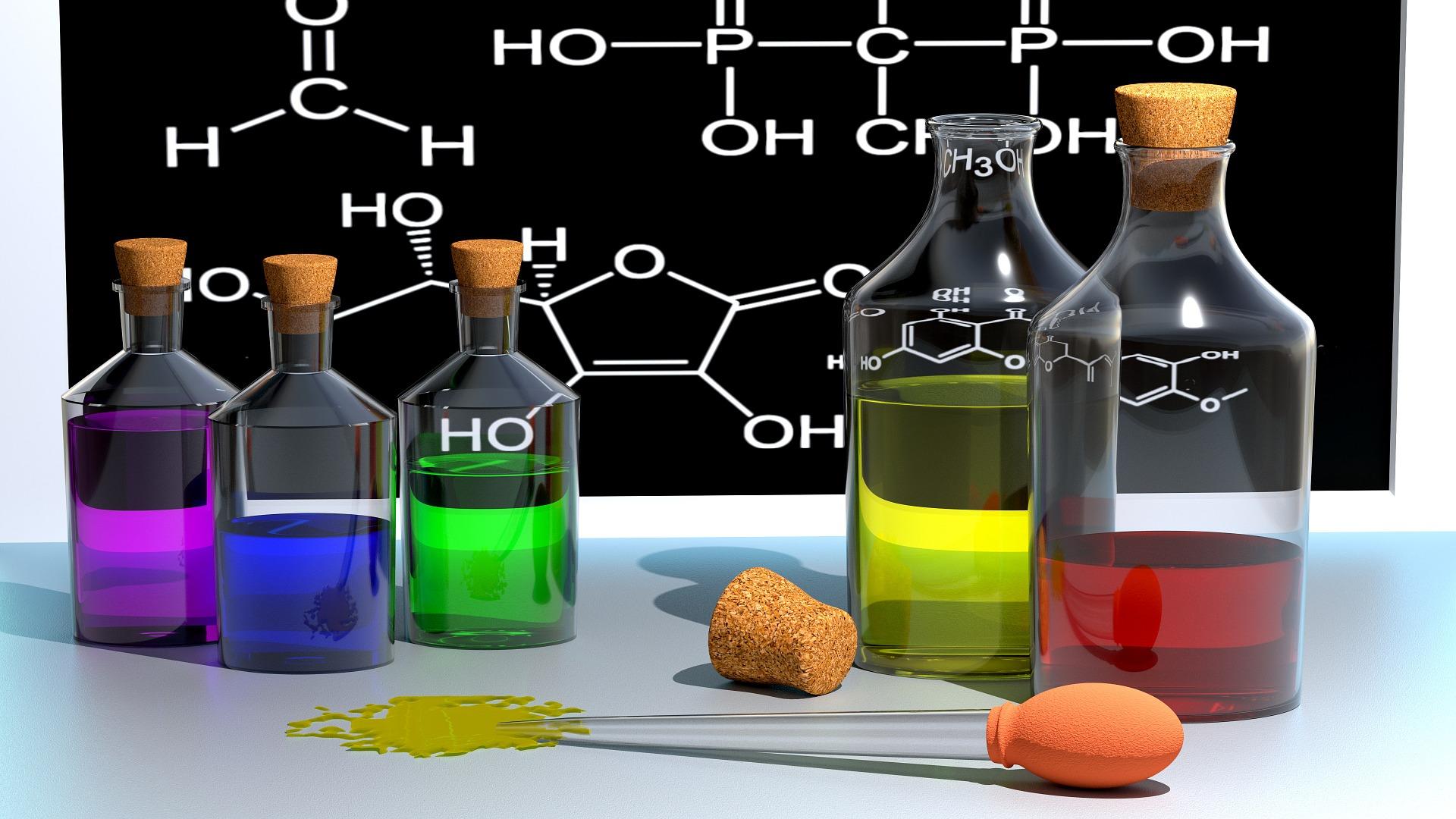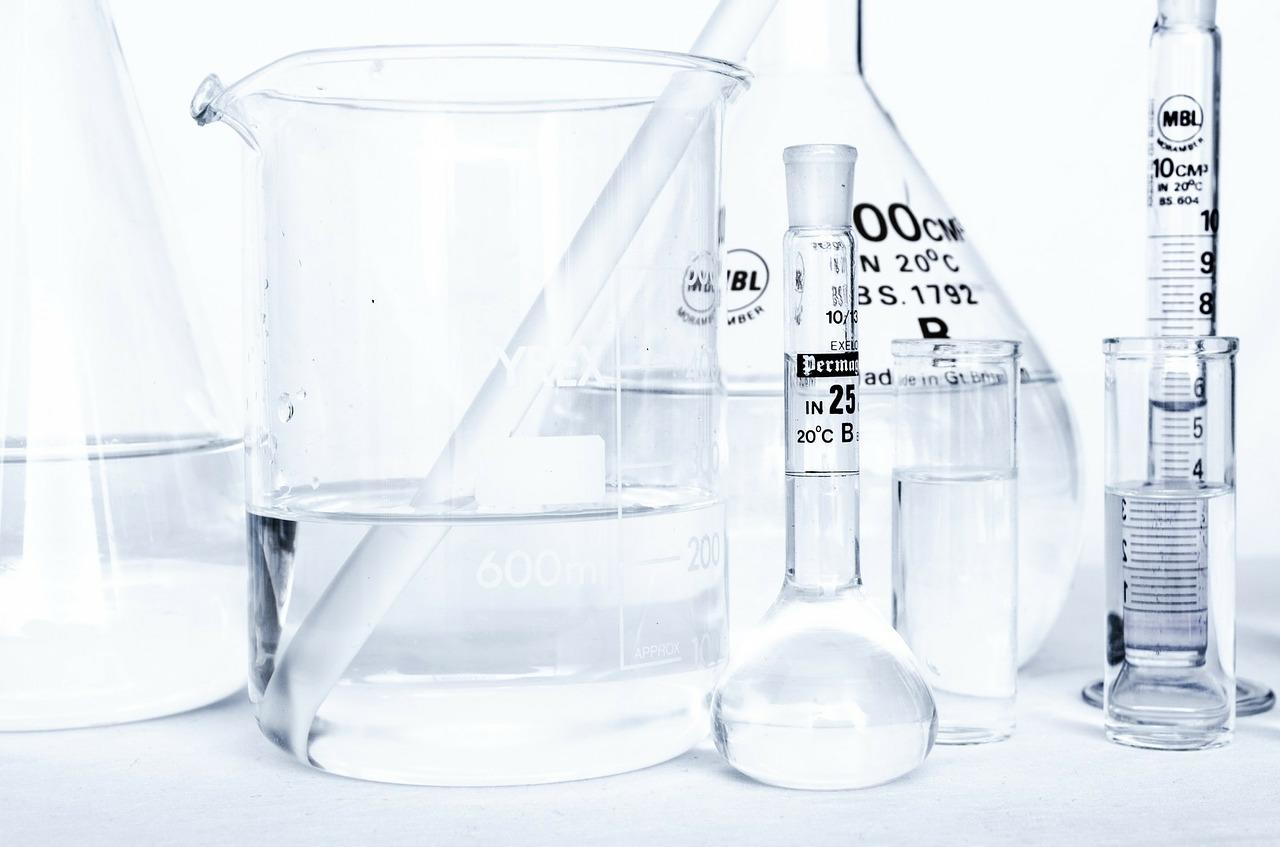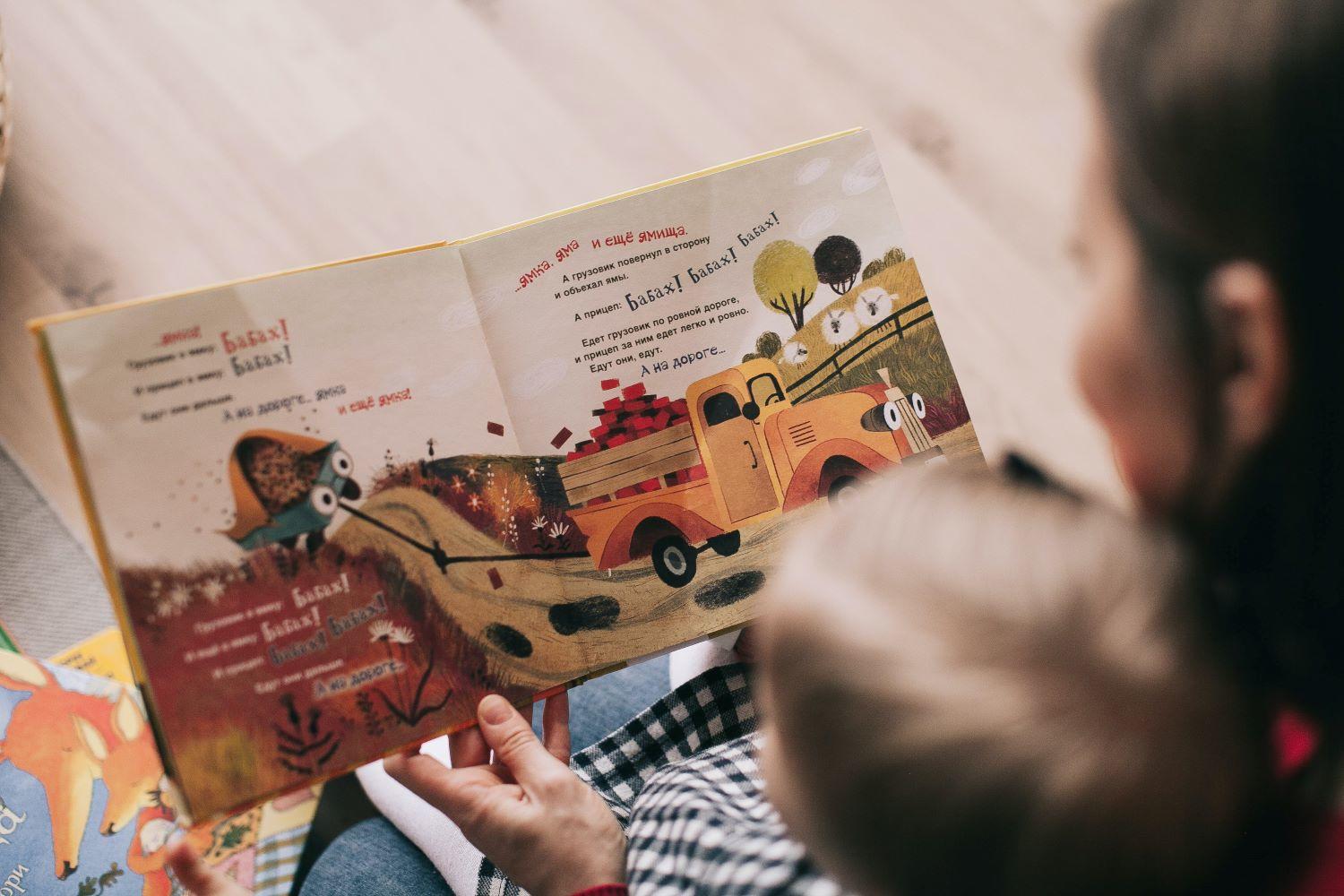Chemistry is an important subject in any child’s education. Like any subject your child studies at school, it’s only natural that you’d like them to do as well academically as possible.
So, if your child has:
- Shown an interest in chemistry as a potential career path;
- An aptitude for chemistry as a subject at school or
- Struggled in the past with chemistry lessons and could do with some additional work to help improve their marks in chemistry,
Then, it can really be beneficial to supplement your child’s knowledge of chemistry at home.
Below are just six different suggestions for how you can complement the online chemistry courses your child should learn at school from the comfort of your home. Of course, it’s worthwhile noting that the below list is not exhaustive and that you might find another way to help improve your child’s chemistry marks!
The most important thing is to see which methods of learning best suit your child and adopt home learning techniques accordingly. It’s also worth taking into account how old your child is when considering the below approaches. Certain experiments, for example, may not be as suitable for younger children. A chemistry tutor will know what a child can do.


Supplement Your Child’s Learning at Home
Chemistry is a broad and complicated subject that allows experienced learners to study different aspects of chemistry, including:
- Environmental chemistry;
- Biochemistry; and
- How chemistry shows how materials interact with one another.
However, in order to gain extensive knowledge of any field, the basics have to be learned. That’s why learning about the basics of chemistry at home can be a great place to start if your child has shown an interest in chemistry or would like to pursue a chemistry-related career.
How you can supplement your child’s knowledge of chemistry will largely depend on how much they already know and how old the child is.
For example, if your child is already at school, has been taught a little about chemistry and seems enthusiastic to learn more about the subject, then you could look at improving their knowledge of the subject in a number of different ways. For instance, you could:
- Spend some on-one time helping your child with their chemistry homework to try to ensure they’ve fully understood the content of the lesson and accompanying homework task, or
- Encourage them to learn more about the chemistry syllabus they are studying – perhaps by looking at science topics that will be covered in future lessons or by helping them research previous lesson topics in greater depth.
Of course, if you want to help your child learn more about chemistry but have limited knowledge of the subject yourself, then you can also achieve the above results through the use of a tutor, who can be found on websites such as Superprof.
Equally, if your kid is not yet old enough to go to school and learn about chemistry there, there are other ways to pique their interest in basic chemistry - for example, by showing them videos of different chemical reactions online, giving them a crash course in kitchen chemistry through baking, or buying them a collection of science toys.
Get a chemistry tutor in Calgary here.
Watch a Variety of Science Programmes
There’s no escaping the fact that we now live in a digital age. As a result, the vast majority of children are already familiar with having tablets, laptops, TVs and mobile phones as a source of information.
One of the great things about technology is that it can be used for educational purposes. Educational TV shows about science can be a wonderful way of teaching children more about the world of chemistry and science.
For instance, the BBC has some short videos that cover chemistry topics, including Chemistry: A Volatile History, which explores topics including the formation of the periodic table. There’s also the slightly older show, Bill Nye the Science Guy, which nevertheless can teach kids some interesting facts about science in an engaging way.

Look at Different Chemistry Sets for Kids
One of the more fun ways to get children to engage with the world of chemistry is to encourage them to try out some experiments with their own chemistry set!
A chemistry set is a brilliant way for children to play while helping them learn more about the principles of chemistry and chemical processes.
What’s more, you don’t necessarily need to have a lot of space in your house to set up a chemistry set or station for your children – a small desk will suffice. You don't need to recreate a science laboratory and have every microscope, beaker, or test tube to create a fun learning environment.
These chemistry sets transform learning into play and offer an intimate understanding of chemical principles and processes. The beauty lies in the simplicity – a small desk becomes a launchpad for scientific exploration, eliminating the need for an elaborate laboratory setup.
Whether you purchase a ready-made set or embark on creating your own, the possibilities are as vast as the universe itself.
Before diving into the enchanting realm of experiments, ensure the ingredients are child-safe, emphasizing safety in every scientific pursuit.
Tailor the chemistry set to your child's age, considering the level of supervision required for tasks like measuring. The versatility of these sets allows you to curate experiments that align with your child's interests and curiosity, turning ordinary moments into extraordinary learning experiences. Chemistry sets become not just tools for education but catalysts for sparking a lifelong passion for the wonders of science.
Chemistry-Themed Movie Nights!
Like any subject, chemistry can be a great delight for your kids when approached with a dash of entertainment. Picture cozy blankets, bowls of popcorn, and a movie that entertains and sparks curiosity about the wonders of chemistry.
- Select kid-friendly science movies
Opt for movies like "The Magic School Bus" series or "Flubber" that weave scientific concepts into engaging storylines, making learning feel like a thrilling storyline.
- Create a movie night ritual
Establish a movie night ritual, perhaps a special chemistry-themed snack or a homemade concoction, turning it into a celebration of science right in your living room.
- Explore real-life chemical reactions
Pause the movie to discuss and explore real-life chemical reactions showcased in the film. For instance, after a scene involving baking soda and vinegar, embark on a mini-experiment to witness the magic in action.
- Encourage post-movie discussions
Foster curiosity by encouraging post-movie discussions. Ask questions like, "Did you catch that cool experiment?" or "What do you think would happen if we tried that at home?"
Immerse your family in the magic of science through the lens of cinema, where learning becomes a shared experience, and chemistry transforms into an entertaining character on your screen.
Incorporating Chemistry into Daily Routines
Just as breakfast sparks the day, infuse a dash of science into the morning routine. Identify chemical reactions while mixing ingredients for pancakes, turning the kitchen into a lively laboratory.

As your child brushes their teeth, unravel the science behind toothpaste, exploring the magical world of molecules.
During outdoor play, observe the principles of environmental chemistry as raindrops become tiny liquid chemists on leaves. Harness the power of everyday items, such as baking soda and vinegar, to create captivating mini eruptions during playtime—simple yet mesmerizing experiments that unfold the secrets of chemical reactions.
In the grocery store, turn the shopping list into a scavenger hunt for chemical elements, transforming the mundane task into a scientific exploration. Explore pH levels by introducing litmus paper to common household liquids, demystifying acidity in an interactive and hands-on way.
Tips for Incorporating Chemistry into Daily Routines
- Turn cooking into a chemistry lesson with simple kitchen experiments.
- Explore the chemical wonders of rain during outdoor activities.
- Uncover the secrets of household items through interactive experiments.
- Make grocery shopping a scavenger hunt for chemical elements.
- Introduce litmus paper to demystify pH levels in everyday liquids.
Through these daily interactions, you make chemistry a natural part of your child's world, fostering curiosity and understanding with every ordinary moment.

Try Fun Chemistry Experiments at Home
Building on the idea of getting your child a chemistry set, another way to teach children how exciting chemistry can be is to encourage them to carry out easy experiments at home.
We’ve all seen a chemical volcano experiment created using a combination of baking soda and vinegar and perhaps a dash of food colouring – so why not start your child off with similar experiments?
Often, these science experiments require just a few household ingredients, are easy to carry out and observe, and can teach your child about how certain chemical elements and substances react with one another. In short - they're a great teaching tool for any budding chemist or scientist!
For example, you could try to make slime with your child, check out invisible ink, conduct experiments that teach lessons about magnetism or static electricity, or opt for a more explosive chemistry experiment by adding Mentos to a bottle of Diet Coke.
If you want to do the Diet Coke and Mentos experiment, only do it in an outdoor space unless you want a huge stream of bubbles to soak an indoor room!
Some other common experiments that may be worth trying are outlined in a video from the BBC. These experiments should keep your child entertained for a number of hours as they observe the weird and wonderful processes that each science experiment highlights.

Expand Kids’ Knowledge With Chemistry Books
While some may view this as a more conventional approach, the truth is that chemistry books, akin to their counterparts in biology and physics, don't need to be dry and dreary. Additionally, today's educational literature is brimming with books designed to infuse excitement into learning, transcending the mundane and making chemistry an adventure for young readers.
Far from the stereotypical textbook, these books weave tales of chemical change, reactions, and the marvels of science in ways that captivate young minds. Imagine your child embarking on a literary journey with titles like "Molecule Mayhem" by Tom Adams, where molecules become playful characters. Or "Fizz, Bubble & Flash! Element Explorations & Atom Adventures for Hands-On Science Fun!" by Anita Brandolini, offering interactive experiments that turn learning into a thrilling escapade.
Nick Arnold's "Chemical Chaos" in the Horrible Science series brings humour, making chemistry entertaining.
Recommended for various age ranges, these books seamlessly blend education with enjoyment, ensuring that your child not only learns about chemistry but revels in the process. So, your young reader is drawn to the magic of words and harbors a curiosity for chemistry. Why not let their literary journey intertwine with the fascinating world of molecules and reactions?
Naturally, educational books, including chemistry books, are often written with different age ranges in mind, so it’s a case of having a look around and seeing which books are highly recommended within your child’s age bracket.
Spark Their Curiosity for Chemistry
The final tip on this list for how you can help your kids learn chemistry at home isn’t strictly home-based. Nevertheless, it can be a wonderful way to help develop your child’s knowledge of chemistry in an environment outside of school.
This is because the final tip is to try and take your kids out to a local science museum or perhaps even a science or chemistry-related event when possible.
Another way to fuel your child's fascination with the wonders of chemistry is embarking on a captivating journey beyond the confines of home—a trip to local science museums or chemistry-related events. While it might not be the traditional home-based strategy, this unconventional approach unfolds an expansive realm for enriching your child's understanding of chemistry.
- Unveiling hidden horizons
These excursions explore dimensions of chemistry that transcend the boundaries of conventional study, offering your child fresh insights into the subject.
- Real-world revelations
They also shift the narrative from abstract theory to tangible reality, showcasing the practical applications of chemistry in everyday scenarios.
- Engaging exhibits
Museums and fairs become vibrant classrooms, transforming abstract theories into memorable, hands-on encounters.
In the pursuit of nurturing your child's curiosity for chemistry, these distinctive tips, including museum outings, aim to be the catalyst for a lasting passion. Should you seek additional guidance, consider the expertise of a physics and chemistry tutor. Explore Superprof's database for tutors offering both online and in-person sessions—an opportunity to further enhance your child's chemistry exploration.
Chemistry-themed Board Games for Family Fun
These engaging games blend entertainment and learning, making chemistry concepts accessible and enjoyable for kids. It also encourages family bonding as children explore scientific principles through lively gameplay, creating an exciting learning environment. One of these games is the Ion game.
The interactive nature of these board games sparks curiosity and reinforces classroom learning in a dynamic setting.
By infusing education into play, children absorb fundamental chemistry concepts and develop a positive association with the subject. Dive into the world of atoms, molecules, and chemical reactions through these entertaining board games, turning ordinary evenings into opportunities for shared discovery and laughter. Chemistry becomes an interactive journey, fostering a love for learning within the family circle.
Exploring Chemistry in Popular Kids' Science Magazines
Just as a good book can transport you to different worlds, these magazines have the magic to transport your kids into the exciting realms of scientific discovery. Imagine your child flipping through glossy pages, wide-eyed with curiosity, as they explore vibrant illustrations and intriguing articles about the latest chemical wonders.
One such example is "Superscience," a magazine tailored for budding scientists. Each issue is a treasure trove of chemistry adventures, presenting topics like colourful chemical reactions and the secret lives of atoms in a way that makes complex concepts accessible to young readers.

Through engaging narratives and playful visuals, these magazines transform abstract theories into delightful stories, igniting a spark of fascination.
Picture your child eagerly sharing newfound knowledge about the chemistry of everyday life, inspired by an article on the surprising science behind bubbles. As they absorb information seamlessly integrated into the narrative, these magazines become companions in their journey of scientific exploration.
The marriage of entertainment and education in these publications ensures that learning about chemistry is not just informative but also a source of joy and inspiration.
Chemistry Art Projects
Just as every brushstroke contributes to a masterpiece, blending science and art creates a canvas for your kids to explore the beauty of chemistry. Imagine a child marveling at the magic of color-changing reactions while crafting their vibrant tie-dye creations. This fusion of chemistry and art transforms ordinary projects into extraordinary learning experiences.
Consider the classic volcano experiment, now reimagined as a sculptural masterpiece with bubbling lava made from a concoction of safe household materials. It's not just an explosion of fun; it's an eruption of curiosity. Lastly, picture children experimenting with chromatography, witnessing the mesmerizing separation of colors on filter paper. These moments aren't just about art; they're about unveiling the wonders of molecular interactions through hands-on exploration.
For a stellar DIY project, envision crafting a constellation-inspired galaxy slime. The stretchy, sparkly substance becomes a metaphorical journey through the cosmos, sparking questions and conversations about the science behind the slime. These artful endeavors transcend traditional learning, making chemistry an adventure in creativity. As a tip, encourage kids to observe, question, and experiment freely, allowing their artistic instincts to harmonize with the principles of chemistry. The key is to nurture their innate curiosity, fostering a lifelong love for science and art.
Hopefully, the above six tips will give you enough inspiration to encourage your child’s budding interest in chemistry. If you are still looking for any further advice or tips on how to teach your kids chemistry at home, then there is always the possibility of turning to a physics and chemistry tutor for some tips and advice.
Superprof has a range of chemistry tutors who are happy to provide both online and in-person tuition services – it’s just a case of searching through Superprof’s database to find the right chemistry tutor for you and your child!
Summarize with AI:















